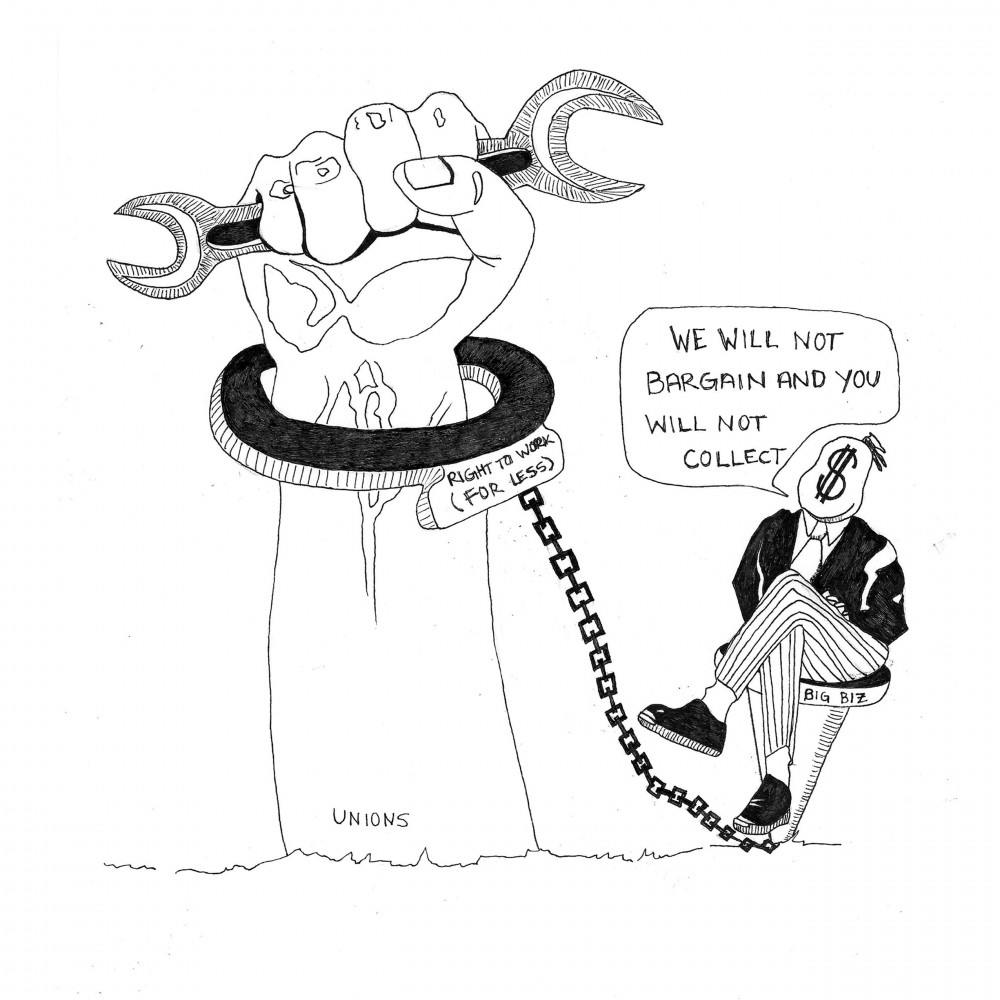The giants of the industrial age are in trouble, and we should be worried.
Through painful collective action, unions gave us taken-for-granted luxuries like the eight-hour workday, weekends and safe working spaces.
Their power ushered in the age of middle class prosperity in America and their decline marks the ominous return of wealth inequality to our country, according to many researchers from the National Bureau of Economic Research (NBER) and the International Monetary Fund (IMF).
Old-style labor organizers achieved bargaining power with the threat of strikes and an employer’s lack of access to alternative labor, but this model must now change.
In globalized labor markets, it’s become more and more difficult to keep manufactures like Carrier in Indianapolis. Franchise-based business models, more on-call scheduling, and ‘gig’ and on-demand service sectors, like Uber and TaskRabbit, have all strained the very definition of employer.
Unions reduce the bargaining inequality between employer and employee and give workers a sense of agency and dignity. When they work properly, unions act like shock absorbers against the forces of globalization.
Without this safety valve, class grievances risk becoming angry, populist outbursts against immigrants and free trade itself.
No other social institution plays such a critical role in maintaining a healthy American democracy and bolstering capitalism than labor unions. But as membership declines, unions need to adapt and evolve new forms of worker governance if they are to survive.
Fortunately, other models exist.
European work councils
bypass the former process of collective bargaining and allow workers to sit directly on the board of directors and tailor national labor policy to their local and company-specific context.
The Ghent system, popular in Denmark and Sweden, gives unions control over welfare payments, particularly unemployment compensation.
This arrangement incentivizes workers to remain in unions but also allows employers more leeway in who they hire.
One obstacle for innovation is the rigidity of U.S. labor laws already in place.
In the early half of the 20th century, labor reform architects could not anticipate the advent of franchising, our diversified economy or ride-share apps like Lyft or Uber.
As a result, laws like the Wagner Act, Taft-Hartley Act and Fair Labor Standards Act forbid the creation of formal workplace committees and mandate obsolete regulations on overtime pay that may be appropriate for steel workers but don’t make sense for Lyft clients.
Labor reformers and jurists, like Andrew Stern and David J Barron, have already made compelling, cross-ideological arguments in the National Affairs and Columbia Law Review for big waivers to “allow states, localities, firms, and unions to fundamentally rewrite many of the major laws that govern labor relations in the United States.”
The federal government already grants some states and counties exemptions to education laws and Medicaid. Waivers could allow more relevant definitions of overtime for the gig economy, give workers a management role and expand hiring hall systems outside of construction and maritime trades.
Certain limitations could ensure those with power do not abuse the opportunity. Waivers could require joint agreement by workers and employer, be subject to pubic hearings and open-comment, need to accomplish the stated purpose of the law and be neutral or cost-saving to the federal budget.
The Editorial Board recommends that Indiana’s Department of Labor explores providing waivers that would encourage an environment of experimental federalism and incubate new models of worker-employer relations.
The only way for unions to succeed in our globalized world is to embrace the future.




